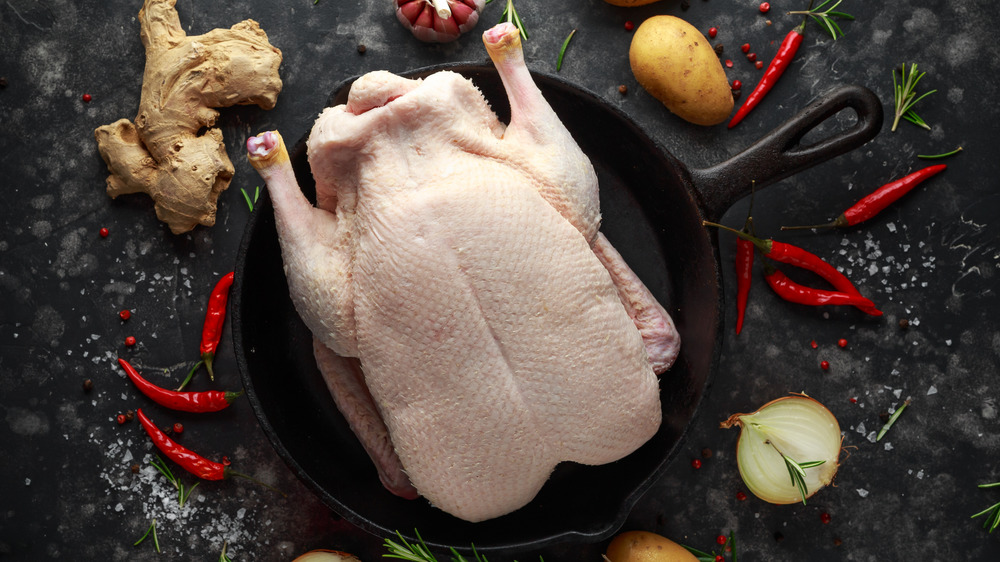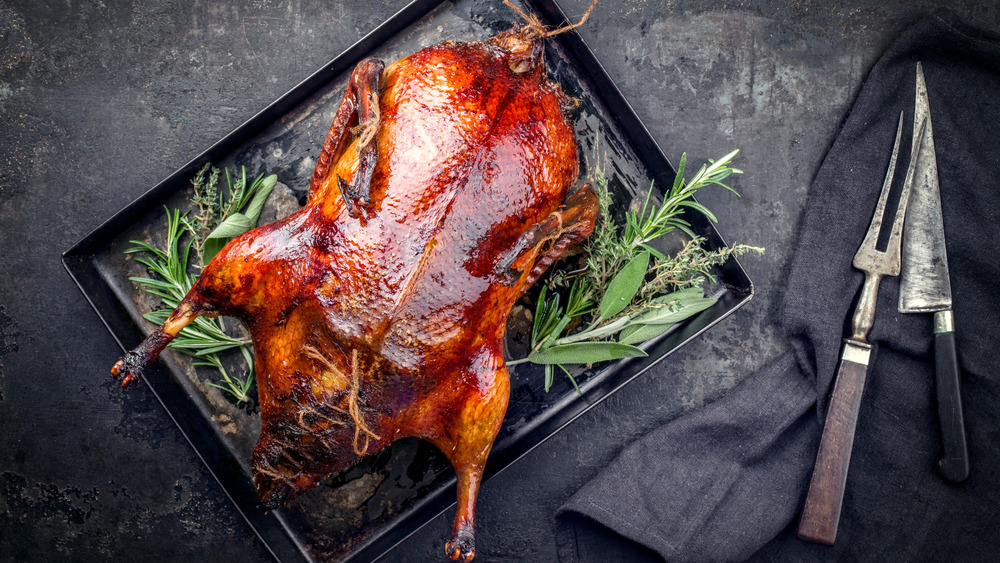Here's Why Duck Is Usually So Greasy
While those of us who cook wouldn't think twice about preparing a chicken or turkey meal at home, we'd probably be a bit more hesitant if we were asked to consider preparing duck instead. And we're guessing the hesitation could have something to do with the fact that ducks – and geese – are just so greasy.
The USDA says there is a biological reason for all that grease. Because ducks and geese swim and float on the water's surface, nature has given them a layer of fat to keep them buoyant. This means the most important part of cooking duck involves getting rid of the fatty layer, and The Spruce Eats has a few suggestions on how this can be done. One way is to steam the duck over boiling water for between 20 and 30 minutes, but that method can actually end up cooking before you intend to, so it may not be good if you planned on having grilled or smoked duck for dinner.
Ducks need to be scored to its fat renders before it is served
Another way to prepare duck is to prick the skin at intervals of about an inch or so all over the entire surface – but you have to be careful not to cut into the meat. Just remember that fat gives more easily than meat does, so when you're puncturing the fowl, just push the knife in gently until you meet some resistance, and then stop (via The Spruce Eats).
BBC Good Food says that because of all that fat, roasting a whole duck involves a bit more work than roasting a chicken does. The site suggests rubbing the duck with sea salt after pricking or scoring the bird and then laying it breast-side down on a rack nestled in a roasting tray. Roast the duck for three hours, and remember to prick it every now and then to keep the fat rendering.
But before you pour all that duck fat down the drain, remember that the fat is a versatile ingredient that can be used in place of butter or other fats, such as vegetable oils. As the Los Angeles Times' Noelle Carter puts it, "duck fat is gold in the kitchen- so save it."

